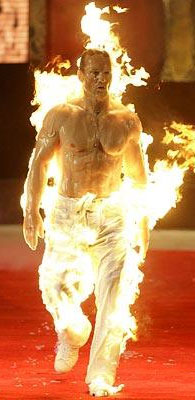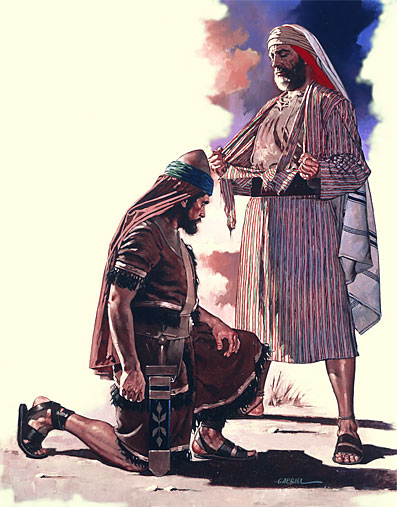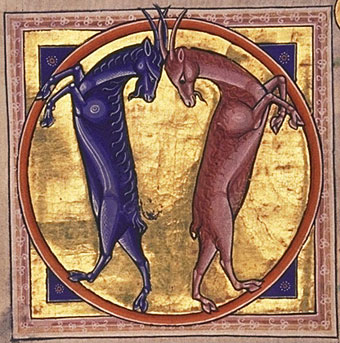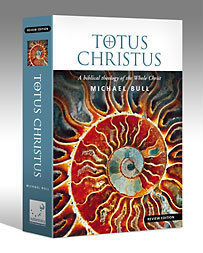Sep
7
2009

Solomon Snubs Ally with Trashy Gift
When I was in sales, I was taught that it takes twelve times as much energy to gain a new client as it does to keep an existing one by letting them know they are not taken for granted. Same goes in geopolitics.
James Jordan writes:
One way to understand the relevance of Egypt [during Solomon's reign] is to contrast Egypt with Tyre. Hiram, king of Tyre, had been a loyal ally of David. He loved David. He clearly was a converted man. When Solomon came to the throne, Hiram could not do enough for him. He volunteered to help build the Temple, because Israel’s God was his God also (1 Kings 5). He showered Solomon with gifts (1 Kings 9:11, 14). If there was any nation Solomon should have allied with, it was Tyre.
Continue reading
Comments Off | tags: Bible history, Egypt, James Jordan, Obama, Politics, Solomon, Tyre | posted in Biblical Theology, Quotes
Aug
22
2009
or Silence of the Lamb

“And when he had spoken such words unto me, I set my face toward the ground, and I became dumb.” Daniel 10:15
NOTE: THIS POST HAS BEEN REMIXED AND INCLUDED IN GOD’S KITCHEN.
The Dominion pattern always begins with a Word from God. The one He speaks to then goes through a symbolic “Passover” death-and-resurrection. The new prophet is then “raised” to his feet (Firstfruits) and given a task. Filled with God’s Word, he opens it to the intended audience (Pentecost).[1]
Continue reading
Comments Off | tags: Bible Matrix, Egypt, Feasts, John the Baptist, Passover, Revelation, Zechariah | posted in Biblical Theology
Jul
25
2009

or Worship-styles of the Bitter and Twisted
Under Rehoboam, Solomon’s kingdom became even more like Egypt. Solomon had imposed greater taxes upon his people than were appropriate, and his son Rehoboam took this to the extreme. So the Lord brought about a new Exodus, with Jeroboam as a kind of Moses. David felt guilty for cutting the corner off Saul’s robe — ie. grasping at Saul’s symbol of office — but to Jeroboam the prophet gave ten of the twelve pieces of his robe, the ten northern tribes.
Continue reading
Comments Off | tags: Aaron, David, Egypt, Golden, Jeroboam, Moses, Saul, Solomon | posted in Biblical Theology, Christian Life
Jun
30
2009
 “And their dead bodies will lie in the street of the great city which spiritually is called Sodom and Egypt, where also our Lord was crucified.” – Revelation 11:8
“And their dead bodies will lie in the street of the great city which spiritually is called Sodom and Egypt, where also our Lord was crucified.” – Revelation 11:8
Revelation 20 makes it clear that the “second death” is the lake of fire. But an analysis of the literary structure of Revelation brings out an interesting factor.
Continue reading
Comments Off | tags: Against Hyperpreterism, Armageddon, Atonement, Azal, Egypt, Feasts, James Jordan, Passover, Peter Leithart, Revelation 20, Smyrna, Sodom, Systematic typology, Tabernacle | posted in Biblical Theology, The Last Days, Totus Christus
May
30
2009
A House of Bread
There are two kinds of whiteness in the Bible, and an understanding of this explains a great deal. There is the whiteness of covering and the whiteness of uncovering. And, as mentioned, the Bible makes a great deal out of the concept of covering.
Bone Collector
Purge me with hyssop, and I shall be clean; Wash me, and I shall be whiter than snow.
Touching a corpse made an Israelite unclean. The remains of those slain in battle were marked with lime for two reasons: so that they could be avoided by the clean, and so they could be gathered up and burned to lime by the bone collectors. Jesus said that the righteousness of the Pharisees was like a whitewashed sepulchre. Not only were they full of the ceremonial uncleanness of broken Covenant, their so-called righteousness was actually a mark from God upon them. They would be gathered to their people not by the Father sending His angels to the four corners of the Land, but by the father of lies and his scavengers sent by God to clean the wound.
This image goes right back to Genesis. Like the angels, the Covenant scavengers, though demonic, are also God’s servants. They are the raven of Noah surviving on floating corpses until the water goes down; they are the scavenging dogs that lick up Jezebel’s blood; they are the maggots in misused manna and abandoned grapes (false bread and wine); they are the unclean birds and animals that screech and howl inside the corpse of a defeated Babylon; they are worms inside Herod ‘enthroned’ as a human Gehenna.
The whiteness of the Pharisees was the whiteness of Miriam’s and Gehazi’s skin-plague. It is the whiteness of flesh and bones exposed as unclean to the eyes of God. Satan himself appeared as an angel of light, but like the Pharisees, he was a false lightbearer, a tutor guiding his children the wrong way.
Continue reading
Comments Off | tags: antichrist, Boaz, Egypt, Ezra, Herod, Jezebel, Lampstand, Laodicea, Leviticus, Manna, millstone, Pergamum, Pharaoh, Pharisees, Priesthood, Rahab, Resurrection, Revelation, Ruth, Samson, Scavengers, Solomon | posted in Biblical Theology, The Last Days, The Restoration Era
Apr
8
2009
“Even if Noah, Daniel, and Job were living in that nation, their faithfulness would not save anyone but themselves. …even if Noah, Daniel, and Job were living there, I, the Lord, promise that the children of these faithful men would also die. Only the three of them would be spared.” (Ezekiel 14:14, 20)
 The mediation of even the holiest men would not avert God’s judgments. Noah had failed to prevent the destruction of the old world. Daniel had failed to prevent the destruction of the Land. Job had failed to prevent the destruction of his children. Like the three domains under these men, Jerusalem was beyond deliverance. And even if these holy watchmen were present in Jerusalem, they alone would be saved. These three only would be rescued from Sodom like Lot. In chapter 23, Ezekiel refers to Jerusalem as Sodom. Jerusalem the oppressor was also like Egypt. As the Land symbolically had four corners, four judgments would desolate it: sword, famine, beasts and pestilence, the Covenant curses from Leviticus 26. This was the Levitical sword indeed. The exiles, as watchmen, would see the repentance of the “marked” survivors and know that the Lord had not acted without cause.
The mediation of even the holiest men would not avert God’s judgments. Noah had failed to prevent the destruction of the old world. Daniel had failed to prevent the destruction of the Land. Job had failed to prevent the destruction of his children. Like the three domains under these men, Jerusalem was beyond deliverance. And even if these holy watchmen were present in Jerusalem, they alone would be saved. These three only would be rescued from Sodom like Lot. In chapter 23, Ezekiel refers to Jerusalem as Sodom. Jerusalem the oppressor was also like Egypt. As the Land symbolically had four corners, four judgments would desolate it: sword, famine, beasts and pestilence, the Covenant curses from Leviticus 26. This was the Levitical sword indeed. The exiles, as watchmen, would see the repentance of the “marked” survivors and know that the Lord had not acted without cause.
Comments Off | tags: Daniel, Egypt, Ezekiel, Job, Noah, Sodom | posted in Biblical Theology, Totus Christus






























